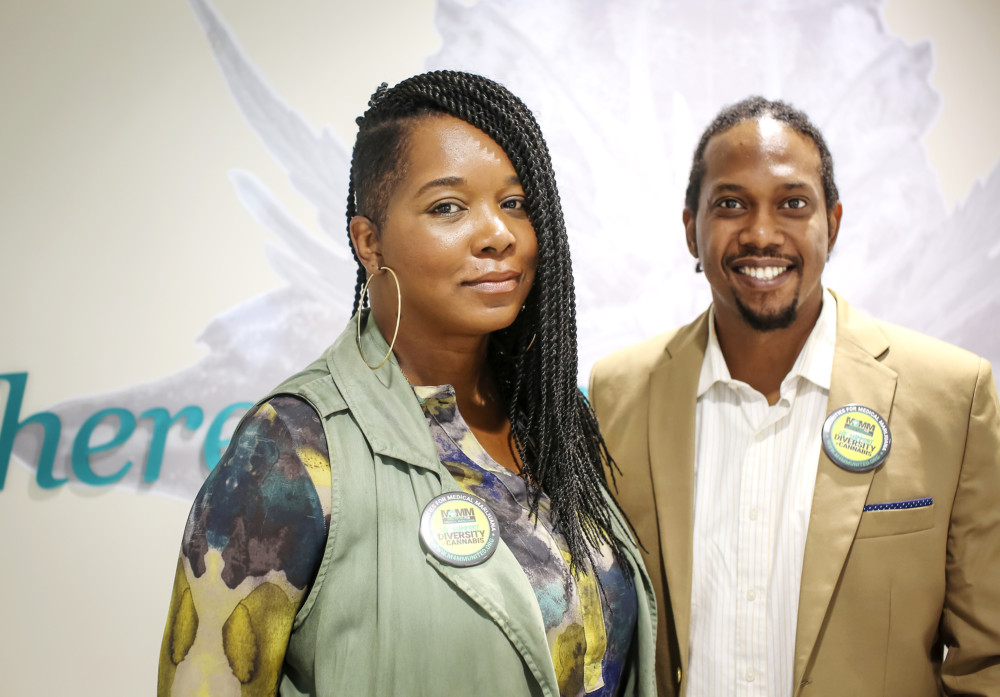By Kyle Arnold
Orlando Sentinel
WWR Article Summary (tl;dr) An Orlando based group called “Minorities 4 Medical Marijuana” says barriers are too high for many minorities to get into the lucrative business.
Orlando Sentinel
Micanopy farmer Matt Bowman looks over his wine vineyard and considers what it would look like with marijuana plants growing there instead.
But Bowman, who is African American, wonders if he’ll be left out of the fast-growing medical marijuana business.
“I know I don’t have enough money to do this on my own,” said Bowman, a 47-year-old retired U.S. Navy pilot. “It’s a big investment, but I do have a lot of knowledge about farming and land practices.”
He and other minorities are fighting for a slice of Florida’s fast-growing medical marijuana industry, a business dominated nationwide by white men.
They’ve formed a group based in Orlando called Minorities 4 Medical Marijuana, which holds classes and networking events to make sure that the business includes at least some people of color.
“Minorities have been the ones punished the most for anti-marijuana laws,” said Roz McCarthy, an African-American woman who founded Minorities 4 Medical Marijuana two years ago and also owns a public relations firm called The Genesis Group. “Now that medical marijuana is legal, those same minorities shouldn’t be left out or scared to participate.”
The group says barriers are too high for many minorities to get into the lucrative business. Nationwide, about 19 percent of marijuana business executives are black, Hispanic, Native American or Asian and about 27 percent are female, according to a survey from trade publication “Marijuana Business Daily.”
“In some places, there are really big financial requirements,” said Paul Seaborn, an assistant business professor who studies marijuana at The University of Denver in Colorado. “That’s disappointing for some people that were hoping this new industry would be more diverse.”
In Florida, applicants must pay a $60,630 licensing fee. They must also prove they have the background to grow and sell marijuana, as well as the money to finance an operation.
Florida has limited licenses to 13 such operations so far. One of those was required to go to a black farmer, a stipulation of a past federal lawsuit. However, the license hasn’t been issued yet after a court challenge over who is eligible. Florida is approaching a milestone of 100,000 active qualified medical marijuana patients that would trigger the issuing of four more medical marijuana licenses. There are 97,046 such patients, according to the Florida Department of Health.
McCarthy said Minorities 4 Medical Marijuana is fighting for more than just the chance to grow and sell weed. Members of the group include the owner of a staffing firm, doctors, lawyers, an art broker, public relations professionals and web developers.
“With this industry, it’s important to get started early,” she said. “Even if you aren’t growing or dispensing, if you can make connections early you will have a big advantage.”
McCarthy worries that if big investors gain a dominant position in the medical marijuana market, it may be too late for minorities to get involved.
The cannabis business is growing here after Florida voters passed a constitutional amendment in 2016 to legalize medical marijuana. As of last week, the medical marijuana patient registry hit 126,000. The state’s 46 dispensaries sold about 60 total pounds of marijuana last week in a variety of products from pills and nasal sprays to vapes and injectables.
Still, many minority groups have been skeptical about participating in the legal medical marijuana markets because of years of demonization from law enforcement, educators and clergy, said Joseph Rosado, an Ormond Beach doctor who specializes in medical cannabis.
“In minority communities, there’s a lot of bad information that marijuana is a gateway drug and that it leads to heroin,” he said. “The truth is, this is an important alternative to people that are taking opioids and dealing with real pain.”
Florida does have at least one Hispanic person who’s heavily involved in the industry. Venezuela-born real estate investor Jose Hidalgo was one of the first to get a license to grow and sell medical marijuana in Florida under his Knox Medical brand.
The group owns a farm in Apopka and has six dispensaries across Florida, including one in Orlando. He said he didn’t feel like it was harder for him as a Hispanic man to get a license, but said he and his business partners have a deep background in real estate, banking, health care and dealing with state regulators.
“Fortunately this is a very diverse state, so I feel like in some ways it is colorblind,” Hidalgo said. “With the experience we have now, we are going into Puerto Rico, Texas and Pennsylvania.”
Bowman, the Micanopy winemaker, said he is working with a group to begin growing hemp in South Carolina and has talked with other companies about partnering to grow marijuana on his property.
“Communities of color have to have greater participation in their states in cannabis, at whatever level it is,” he said. “At cannabis conferences, there are too few people of color. You have to get in early. You have to be engaged in the conversation.”














































































































































































































































































































































































